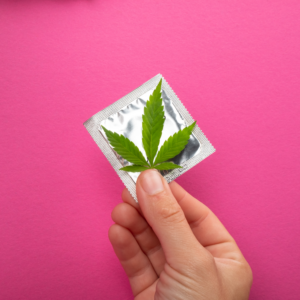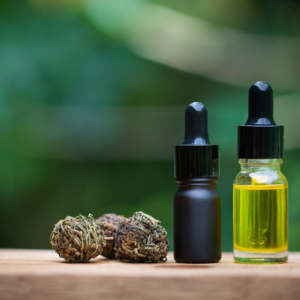otniP r"If cannabis becomes an FDA regulated substance, what will this mean to the thriving medical and recreational cannabis industry?"
If the DEA does move forward in the right direction, chances are it will proceed cautiously and move cannabis to Schedule II. Schedule II drugs are considered “dangerous” and having a “high potential for abuse, with use potentially leading to severe psychological or physical dependence.” Basically, cannabis would join an elite group of substances that includes OxyContin, cocaine, and methamphetamine, which, while potentially “dangerous,” have “medical value.”
Rescheduling, however, would not remove all barriers to research that are afforded to other clinical drug studies that would be required for cannabis products to become approved by the FDA. The DEA and National Institute on Drug Abuse (NIDA) have a monopoly on cannabis production. Critics argue that the monopoly limits supply; predictably, the DEA disagrees.
Contrary to popular belief, rescheduling doesn’t automatically ease federal criminal penalties, nor would it make the manufacture, possession, or distribution of marijuana legal. Patients and caregivers could still be prosecuted and their assets seized. However, according to attorney and drug policy reformer Luke Zimmerman, Esq., “If the DEA reschedules cannabis, it would send a powerful message to law enforcement and the courts in many of the more conservative municipalities, and that could result in more clemency and broader policy reform.”
Rescheduling cannabis would help to solve the tax and banking issues cannabis businesses face. Currently, IRS rule 280(e) prohibits business from deducting most expenses. Likewise, the banking industry has been reticent to work with cannabis businesses, compelling much of the industry to operate only in cash. Note that IRS rule 280(e) includes both Schedule I and II drugs, so the DEA would need to reschedule cannabis to Schedule III or lower, or Congress would have to enact legislation to allow tax deductability for businesses selling Schedule II drugs.
Dr Pinto
The Drug Enforcement Agency (DEA) secretly revealed in mid-2016 that it would be updating marijuana’s classification under the Controlled Substances Act. Cannabis, methamphetamine, cocaine, and other drugs are classified according to how addictive they are and how likely they are to be abused.
Many people questioned if the Narcotic Enforcement Administration (DEA) will reschedule marijuana as a Schedule II drug, relaxing some of the prohibitions now in place. However, in mid-August, the DEA announced that the medication would remain a Schedule I substance, thus saying that it has no accepted medical or non-medical usage.
Despite this, the argument over cannabis’ classification continues. Concerns over cannabis’ classification came to the fore. The federal government is unlikely to reschedule marijuana anytime soon, but that hasn’t stopped several states from doing so. Furthermore, public opinion is shifting in favor of legalizing cannabis for both medicinal and recreational usage. Bernie Sanders, a former presidential contender and current Senator from Vermont, sponsored legislation in November 2015 to de-schedule marijuana, treating it like alcohol or cigarettes. A previous surgeon general backed the bill, but it didn’t have enough votes in the Senate to pass.
It’s unlikely that marijuana will be removed from the Controlled Substances Act anytime soon, but changing its categorization might open the door to more research and give cannabis activists a boost. Here’s a rundown of the most likely changes and what they represent for the marijuana sector.
Marijuana has been classified as a Schedule I drug since the Controlled Substances Act was passed in 1970. According to the FDA, these medications have "a significant potential for abuse" and "no currently acknowledged medical use," according to the FDA. Under this categorization, cannabis joins heroin, LSD, ecstasy, and peyote in severely restricting study and making them illegal for any usage on the federal level.
Paula jones
Cocaine, Vicodin, OxyContin, Adderal, and Ritalin are just a few of them. According to the Brookings Institution, moving cannabis to a Schedule II drug might ease some of the bureaucratic red tape around research, but there are still severe prohibitions on administering the medicine.





